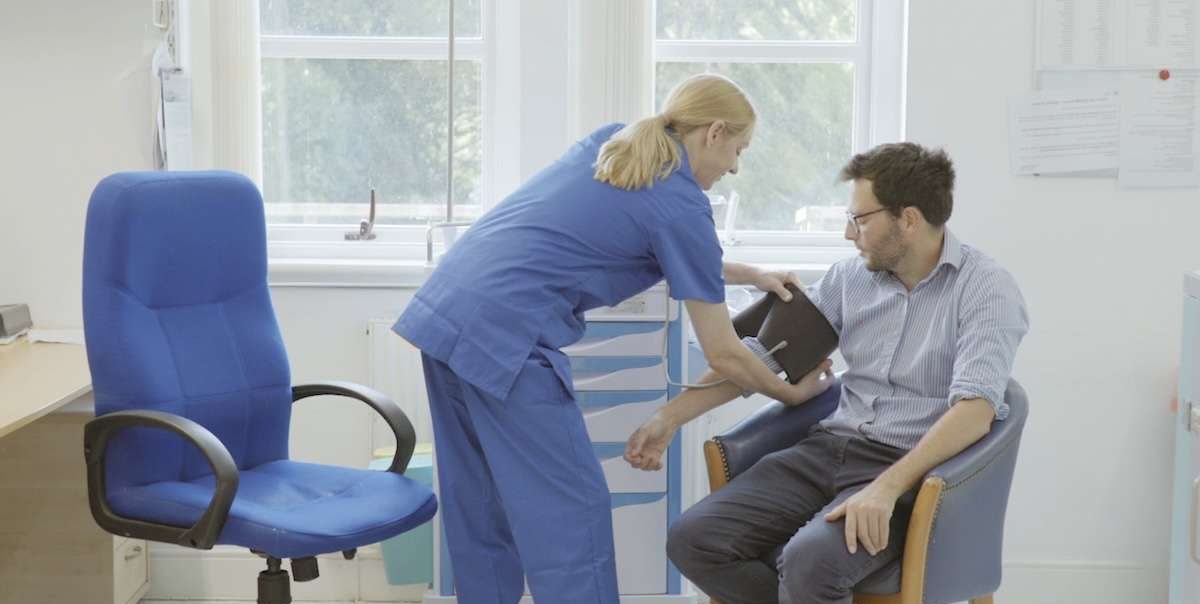
Residential Methadone Detox Treatment
At Castle Craig, we provide medically managed detox for methadone dependency within a residential setting designed for safety, discretion and lasting recovery. Our peaceful countryside location offers a calm, private space for healing while our experienced team delivers evidence-based treatment with psychological and medical expertise. We believe in whole-person care, combining structured detox protocols with therapies that support long-term well-being in body and mind.
While methadone is commonly used to help people withdraw from opioids such as heroin, it carries its own risk of dependency. This article offers clear, practical guidance on topics like how long it takes to detox from methadone, typical withdrawal symptoms, medically managed detox options and what to expect from a methadone detox timeline. To learn more about our inpatient methadone detox treatment on behalf of yourself or a loved one, please call 01721 546 263.
What is Methadone?
Methadone is a long-acting opioid medication used to manage pain or reduce withdrawal symptoms in people recovering from opioid addiction. It is not the same as methamphetamine, also known as crystal meth, which is a powerful stimulant. Methadone is a depressant and affects the brain and body very differently.
In the UK, methadone is most often prescribed as part of opioid substitution therapy to help people reduce or stop heroin use. It may be prescribed under names like Methadone Oral Solution, Physeptone or occasionally Methadose, depending on the manufacturer and setting. When taken exactly as directed, it can be effective in managing opioid cravings. However, methadone itself is an addictive substance, and long-term use can lead to physical dependence or misuse, especially if taken outside of medical supervision.
What is Methadone Detoxification?
Methadone detoxification is the process of clearing methadone from the body after physical dependence has developed. It typically involves managing withdrawal symptoms while the drug is gradually reduced or stopped altogether under medical guidance.
Detoxing from methadone can be physically and emotionally challenging due to its long half-life and strong withdrawal effects. While some people attempt to detox on their own, doing so without medical support can lead to relapse or serious health risks. A structured, clinically supported detox is often the safest option.
What is a Medically Managed Methadone Detox?
A medically managed methadone detox is a highly structured process overseen by doctors and clinical staff in an inpatient setting. It includes continuous medical monitoring, prescribed medications and psychological support to help patients safely and comfortably withdraw from methadone.
At Castle Craig, our medical detox services are tailored to each person’s health needs and dependency history. This type of detox helps reduce withdrawal severity and supports mental and physical stability, forming the foundation for long-term recovery. It’s especially beneficial for people with complex medical or psychiatric conditions.

Start Your Recovery at a Residential Rehab Today
Difference Between Medically Managed Methadone Detox and Medically Supervised Methadone Detox
A medically managed methadone detox is conducted in a fully inpatient environment with round-the-clock medical care, individualised planning and integrated psychological treatment. It’s the highest level of care available for methadone withdrawal.
In contrast, medically supervised detox may involve outpatient or limited monitoring by healthcare providers. While it offers some support, it may lack the intensive medical oversight and safety of a managed inpatient setting.
Free Methadone Addiction Assessment
Castle Craig offers a free, confidential assessment for anyone struggling with methadone use. Our experienced admissions team can help determine whether inpatient detox is right for you or your loved one and guide you through the next steps with compassion and clarity.
Following your assessment, we can create a personalised methadone detox treatment plan based on your health needs, substance history and personal circumstances. Our expert clinical team understands the complexities of detoxing from methadone, particularly when it’s been prescribed to treat another addiction, and we use safe, proven methods to support lasting recovery.
Free Methadone Addiction Assessment
Taking the first step and asking for help can feel daunting, but our team is here to assist you.
Benefits of Inpatient Opioid Replacement Therapy Drug Detox
There are many benefits to undergoing methadone detox in a residential setting. Inpatient care offers round-the-clock clinical supervision, protection from triggers, and a consistent routine to support physical and psychological recovery.
The following sections outline some of the specific advantages of choosing inpatient rehabilitation treatment for people detoxing from methadone or other opioid maintenance drugs.
-
Clinically Supervised Detox from Opioid Replacement Therapy
In an inpatient detox centre, clinical staff are available 24/7 to monitor vital signs, manage medication and respond to complications as they arise. This level of supervision helps minimise the risks associated with opioid withdrawal, particularly with long-acting medications like methadone.
Castle Craig’s medically managed detox service is led by an experienced team of doctors, nurses and therapists who specialise in opioid substitute withdrawal. Care is coordinated to ensure safety and support from the very first day of methadone detox treatment.
-
Symptom Management During Methadone Withdrawal
Residential detox centres are equipped to manage the full range of methadone withdrawal symptoms, including gastrointestinal distress, sleep disturbances and emotional instability. Medications, hydration, nutrition and rest are carefully balanced to ease discomfort and encourage stability.
Detoxing from methadone is different for everyone, which is why having access to a responsive care team is important. An inpatient methadone detox can help to reduce the severity of symptoms and improve the chances of completing withdrawal successfully.
-
Rapid Access to Opiate Dependency Recovery Detox Treatment
Delays in rehabilitation treatment can lead to ongoing drug use, overdose or further physical decline. Inpatient detox centres in the UK are designed to provide quick admissions and medical assessment for people in need of urgent methadone detox.
By offering private pay and health insurance options, many patients can access Castle Craig’s medical detox unit without delay. Our admissions team works quickly to assess each case and begin a tailored, medically managed methadone detox plan as soon as possible.
-
Addressing the Cycle of Dependence in a Secure, Supportive Setting
People who try to stop methadone use at home may find themselves caught in a cycle of withdrawal and relapse. Residential or on-site detox aims to break this pattern by offering a structured, trigger-free environment where physical cravings can be managed effectively.
Methadone detox support includes not just symptom relief, but also emotional and behavioural guidance to help patients understand their dependency. This approach lays the groundwork for long-term methadone addiction recovery.
-
Customised Care for Sustained Opioid Replacement Drug Recovery
Each person’s experience with methadone is different, which is why opioid replacement drug detox should never follow a one-size-fits-all model. Live-in withdrawal clinics allow for the development of personalised treatment plans that account for physical health, mental well-being and substance use history.
Castle Craig offers customised methadone detox and recovery strategies shaped by a person’s unique background and clinical needs. Our integrated care model prioritises a safe and compassionate detox experience for those overcoming complex methadone dependency.
-
Emotional & Mental Health Assistance During Methadone Detox
Emotional symptoms like anxiety, low mood and agitation are common when coming off methadone. Many facility-based detox centres offer immediate access to mental health support, including one-to-one addiction counselling and psychiatric care when needed.
A structured detox setting also helps people manage psychological distress while safely navigating symptoms of methadone withdrawal. This support offers welcome reassurance as patients prepare for the next stage of rehabilitation.
-
Seamless Progression from Detox to Opioid Addiction Treatment
Medically supported detox helps stabilise both body and mind, preparing individuals for the next phase of opioid addiction treatment and more sustained recovery work. Without a clear step-down plan, some people can be more vulnerable to relapse after initial withdrawal.
At Castle Craig, patients who complete methadone detox can move directly into our residential rehab programme, where they receive therapy, peer support and relapse prevention tools in a continuous, structured environment.
-
Calm and Supportive Surroundings to Start the Healing Process
Peaceful surroundings can reduce stress and promote positive outcomes during prescribed opioid withdrawal. 24-hour detox centres are designed to be quiet, secure and free from the pressures of everyday life, helping people focus on the abstinence journey ahead.
Starting methadone detox in a calm, private rehab setting can ease symptoms and reduce the emotional burden of withdrawal. This type of environment can be especially beneficial for people with anxiety, a history of relapse or those who find it difficult to detox in chaotic or high-stress situations.
Synthetic Opioid Medication Detox Centre Near Me
If you or someone you care about is struggling with methadone dependence, finding a safe and supportive detox centre near you is important. Below, we explain how to access private inpatient care for methadone detox, including how Castle Craig can help and what to look for in any treatment provider.

Contact Castle Craig Methadone Detox Centre
Castle Craig is located near West Linton, Edinburgh, United Kingdom, EH46 7DH. Our peaceful, countryside estate offers a private, calm and dedicated space to focus on recovery. Patients can benefit from a natural, restorative environment and a full team of medical and therapeutic specialists on site.
Find Us
01721 546 263
info@castlecraig.co.uk
Castle Craig,
West Linton, Edinburgh, United Kingdom, EH46 7DH
To find out more about our residential treatment for methadone addiction, call 01721 546 263 today. Our admissions team is ready to help you explore your options and talk through what a medically managed detox might look like for you.
-
How to Find a Private Inpatient Methadone Detox Centre Near You
If you are looking for help detoxing from methadone, there are a few key steps to help guide your search and choose an opioid medication detox centre that offers the right care and support.
- Search for “Private Methadone Detox Near Me” or Include Your Location: Try search terms like ‘private inpatient methadone detox centre near me’, ‘opioid maintenance drug detox clinic’ or ‘medically managed methadone detox UK’ to find options close to home.
- Look for Medical Expertise and 24/7 Support: Methadone detox should always be overseen by experienced professionals. Opioid rehab centres with round-the-clock nursing care and on-site doctors offer high levels of safety and care.
- Read Reviews from Past Patients: First-hand testimonials can offer insight into the quality of treatment, staff support and real-life recovery experiences from people who have completed the facility’s methadone detox programme.
- Consider What’s Included in the Programme: A reputable detox centre should offer more than medication. Look for clinics that include therapy, nutritional support, medical assessments and strategic planning for ongoing care.
- Ask About the Cost of Methadone Detox and Payment Options: The cost of methadone detox can vary widely in the UK. Ask for a clear breakdown of fees and whether payment plans or financial assistance may be available.
- Check if They Accept Medical Insurance: Some private detox centres accept insurance or offer help with applying for cover. Always check what’s included and whether any authorisation is required in advance.
Find Out About Our Methadone Detox Programme
Castle Craig offers inpatient detox treatment from our onsite, 11-bed medical withdrawal centre in the Scottish Borders countryside. Surrounded by nature and supported by a full clinical team, our detox unit provides a safe, private setting to begin recovery from methadone dependence.
We develop a medical detox and addiction recovery plan adapted to reflect your unique history with methadone. Whether you’ve been using the drug long-term or have struggled with repeated attempts to stop, our team can provide structured support for a safe and sustainable withdrawal process. Call 01721 546 263 now to get started.
Signs, Symptoms and Effects of Narcotic Analgesic Withdrawal & Detoxification
Understanding the symptoms of methadone withdrawal can help people prepare themselves for the detox process. These are some of the more common signs, symptoms and effects associated with detoxing from methadone, but they do not represent a full list. Severity and duration may vary depending on a person’s health, history and level of use.
-
Early Signs of Long-Acting Opioid Substitute Withdrawal
In the early stages of opioid substitute withdrawal, people may experience physical and emotional discomfort as the drug begins to leave the system. Early symptoms can vary in intensity but are often the first indicators that detox is underway.
- Anxiety and Restlessness: Persistent unease, racing thoughts and trouble staying still.
- Sweating and Chills: Sudden hot flushes or cold sensations without changes in temperature.
- Muscle Aches: Widespread pain, cramping or stiffness in the body.
- Yawning Frequently: Repeated yawning even when not tired or drowsy.
- Watery Eyes and Runny Nose: Irritation of the eyes and sinuses that mimics cold symptoms.
-
Moderate to Severe Symptoms of Methadone Withdrawal Syndrome
As methadone detox progresses, withdrawal symptoms may intensify. Moderate to severe effects typically emerge after the initial phase and can continue for several days or longer, depending on dosage history and individual response.
- Nausea and Vomiting: Persistent stomach upset that may result in vomiting, especially during the peak of methadone withdrawal.
- Abdominal Cramps: Painful tightening or spasms in the stomach, often accompanied by digestive upset.
- Insomnia and Disturbed Sleep: Difficulty falling or staying asleep, with frequent waking and vivid dreams.
- Elevated Heart Rate: Noticeable increase in heart rate, sometimes felt as palpitations or chest tightness.
- Intense Drug Cravings: Overwhelming urges to retake methadone to relieve discomfort or anxiety.
-
Psychological Effects of Controlled Pain-Relief Medicine Withdrawal
Psychological withdrawal symptoms often develop alongside physical effects during methadone withdrawal. These changes may begin within the first few days and can persist throughout detox, especially without structured support.
- Anxiety and Panic: Intense nervousness or sudden panic attacks triggered by physical withdrawal or fear of relapse.
- Depression or Low Mood: A persistent feeling of sadness, hopelessness or emotional numbness during the detox process.
- Irritability and Agitation: Easily triggered frustration, mood swings or restlessness in response to discomfort or cravings.
- Difficulty Concentrating: Trouble focusing, remembering things or staying mentally engaged with daily tasks.
- Emotional Instability: Rapid emotional shifts, such as crying spells or feeling overwhelmed without a clear cause.
-
Physical Signs and Symptoms of Methadone Detoxification
Physical symptoms of methadone detox often begin within the first 24 to 48 hours after stopping use and can last for several days. They indicate the body’s response to the absence of a long-acting opioid.
- Muscle Aches and Pains: Generalised discomfort or soreness, especially in the back, legs and joints.
- Nausea and Vomiting: Stomach discomfort leading to queasiness, dry heaving or repeated vomiting.
- Sweating and Chills: Sudden shifts between feeling overheated and cold, unrelated to room temperature.
- Diarrhoea or Stomach Cramps: Frequent, loose bowel movements paired with lower abdominal pain or cramping.
- Rapid Heartbeat or Tremors: Noticeable increase in heart rate or mild shaking in hands and limbs.
-
Long-Term Effects Without Proper Detoxification Support
Without a safe, medically managed methadone detox, withdrawal symptoms can linger and potentially lead to long-term health complications. The effects below may persist for weeks or even months, especially in cases of repeated or unsupported detox attempts.
- Chronic Fatigue and Weakness: Lasting tiredness or reduced physical strength that interferes with daily activities.
- Persistent Mood Swings: Fluctuations between irritability, sadness or anger, often without clear external reasons.
- Ongoing Sleep Disturbances: Continued trouble falling asleep, poor sleep quality or early waking.
- Increased Risk of Relapse: Higher chance of returning to methadone or other opioids to relieve discomfort.
- Cognitive Impairment Issues: Difficulty with memory, focus or decision-making during and after withdrawal.

Medications Used for Methadone Detoxification
Medications may or may not be used during methadone detox, depending on the severity of dependence and each person’s specific health needs. Because methadone is a detox medication and a medication assisted treatment drug itself, managing withdrawal from it requires careful clinical oversight and knowledge.
In some cases, medications can help ease methadone withdrawal symptoms, but they should be prescribed and administered by a medical professional. Below are some commonly used options that may be considered during detox from a MAT drug.
- Clonidine: Used to reduce methadone withdrawal symptoms like anxiety, sweating and rapid heart rate. It can lower blood pressure, so medical supervision is required.
- Buprenorphine: A partial opioid agonist that may be used for stabilisation or tapering. It’s not suitable for all patients detoxing from methadone, and can carry a risk of dependence.
- Naltrexone: Blocks opioid receptors but can cause severe withdrawal if used too soon. It is usually only introduced after full opioid detox is complete.
- Lofexidine: Similar to clonidine, this medication helps with anxiety and physical discomfort. It must be monitored due to its effect on blood pressure.
- Diazepam: Used for severe anxiety, agitation or insomnia. As a benzodiazepine, it carries its own risk of dependency and is used cautiously.
- Gabapentin: May relieve nerve pain, insomnia or restlessness. While generally well tolerated, it must be prescribed with an awareness of misuse potential.
- Ibuprofen: Over-the-counter pain relief for muscle aches and cramping. It is commonly used but must be monitored during a detox process for stomach or kidney side effects.
- Ondansetron: An anti-nausea drug often used to reduce vomiting during methadone withdrawal. Generally safe but should still be prescribed within a structured rehab treatment plan.
At Castle Craig, our use of detox medications is guided by clinical necessity and managed with the utmost care to avoid creating new dependencies. We recognise that some patients may have been prescribed methadone or similar treatments during a previous detox and may now be concerned about becoming dependent on a medication meant to support recovery. That’s why all prescriptions are carefully overseen by our Consultant Psychiatrist and experienced medical team, ensuring safe and appropriate use throughout your stay.
Our goal is to alleviate withdrawal symptoms safely while focusing on your overall recovery and the goal of abstinence from opioid replacement therapy drugs. By using evidence-based protocols and regularly assessing your progress, we only use detox medications as a short-term tool to support your transition into sobriety, always prioritising your long-term health, well-being and abstinence.

Contact Castle Craig Today
If you or someone you care about is struggling with methadone misuse, contact Castle Craig to learn more about our residential detox treatment and intake process. We offer in-depth initial assessments to help determine the safest and most appropriate care based on your individual needs. Recovery is possible, and it can begin today.
Does Health Insurance Cover Methadone Detox Treatment?
Yes, private health insurance will often cover detox treatment for methadone or other substitution therapies, but this depends on your provider and the level of coverage in your policy. Some plans include inpatient detox as part of addiction care, while others may require prior authorisation.
If you are covered and approved for treatment with us, Castle Craig accepts private health and medical insurance from many major UK and international providers. We can guide you through the insurance admissions process and help clarify what your insurer has confirmed you’re eligible for.
How Much Does Residential Opioid Substitute Detox Cost in the UK?
Residential methadone detox in the UK typically costs between £1,000 and £6,000 for a 7-10 day stay. If detox is part of a longer rehabilitation programme, you can then expect a daily cost of £650–£1,500. Monthly methadone rehab fees range from £18,000 to over £40,000, depending on the clinic and level of care.
Methadone rehab costs will vary based on medical needs, length of stay and treatment approach. To find out about Castle Craig’s all-inclusive pricing for 4-week, 6-week and 12-week programmes, including medically managed methadone detox, please call 01721 546 263 to speak to a member of our team.
Methadone Detox Timeline and How Long It Takes
Clearing methadone from the body is just one phase in a longer journey toward recovery. While detox helps manage withdrawal symptoms, most people benefit from completing a full methadone rehab programme to help them achieve sustainable abstinence. Below, we outline a general timeline for detox from methadone, though the experience can vary depending on dosage, duration of use and personal health history.
-
Stage 1: Early Withdrawal Symptoms (12-36 Hours After Last Dose)
Early symptoms of methadone withdrawal usually begin anywhere from 12 to 36 hours after the final dose, depending on factors like dose size, duration of use and metabolism. Initial signs are typically mild and include restlessness, sweating, yawning, watery eyes and mild anxiety.
During this stage, physical discomfort is often manageable but may cause emotional unease or sleep disruption. Supportive monitoring, hydration and early symptom control can make a significant difference as the body begins adjusting to the absence of methadone.
-
Stage 2: Peak Methadone Withdrawal Symptoms (48-96 Hours)
The most intense symptoms of methadone withdrawal tend to appear between 48 and 96 hours after the last dose. These may include nausea, diarrhoea, abdominal cramps, chills, muscle pain, insomnia and increased drug cravings. Mood disturbances like irritability and depression are also common.
This is typically the most difficult stage of methadone detox, both physically and psychologically. A medically managed methadone detox can reduce the risks during this period by offering round-the-clock care, symptom relief and emotional support in a safe, structured space.
-
Stage 3: Subsiding Symptoms and Stabilisation (5-10 Days+)
By day five or beyond, physical symptoms of methadone withdrawal usually begin to subside, although some discomfort may continue (especially sleep issues, fatigue or low mood). Psychological signs may linger longer and often require continued therapeutic support.
This stage is a key turning point in detox from methadone. While people often feel more physically stable, this is when preparation for the next phase of addiction rehab treatment should begin. Emotional support, therapy and relapse prevention planning help strengthen long-term recovery efforts and help patients continue their commitment to sobriety.

Related Guides on Medically Managed Residential Detox
Detox Centre | Inpatient Detox | Alcohol | Drugs | Cocaine | Heroin | Crystal Meth | Valium | Tramadol | Benzodiazepines | Xanax | Codeine | Opioid | Ecstasy | Morphine | Amphetamine | Cannabis
Inpatient Methadone Detox Treatment Admissions Process
The admissions process for methadone detox is designed to help our clinical team understand your medical background, substance use history and personal recovery needs. This ensures that we can provide the most appropriate and safe treatment plan for managing methadone withdrawal.
- Initial Contact and Private Consultation: The process begins with a confidential call or enquiry, where you can discuss your concerns and ask questions. Our admissions specialists will explain your options and gather basic information to help determine next steps.
- Comprehensive Pre-Detox Assessment: A full medical and psychiatric assessment is arranged to explore your history with methadone, other substance use and any co-occurring conditions. This helps shape a clinically appropriate detox approach.
- Verification of Insurance or Payment Arrangements: If you intend to use private health insurance, we can help guide you through the admissions requirements and clarify what has been confirmed by your provider. Self-funding patients will receive a breakdown of fees and what’s included.
- Admission Confirmation and Scheduling: Once your assessment is reviewed and payment arrangements are in place, we’ll confirm your admission and arrange a date. We aim to offer admission as quickly as possible, especially in urgent cases.
- Arrival and Intake for Methadone Withdrawal Treatment: On arrival at Castle Craig, you’ll be welcomed by the medical and therapeutic team. A structured intake process begins, including orientation, medication review and the start of your methadone detox plan.
Questions About Detox for Methadone?
Contact us to discuss your treatment needs with a licensed clinician.
Find Out About Our Inpatient Drug Detox Treatment
Castle Craig offers free drug addiction assessments to help us understand your specific circumstances and how best to support safe methadone detox. These assessments allow our clinical team to evaluate your needs and recommend the most appropriate level of care for you.
Following your assessment, we can create a personalised treatment plan based on your medical history, substance use and recovery goals. We’ll also provide a clear, detailed outline of costs for methadone detox and longer-term rehab, including all-inclusive options for 4, 6 or 12 weeks. To book your assessment, call 01721 546 263 or you can fill out the form below to get in touch.
Free Methadone Addiction Assessment
Compassionate, expertly delivered evidence-based practices and a patient-centred approach are at the heart of our treatment model. Request a call-back from one of our professionals on any day of the week.
-
Statistics on Methadone Use in the UK
- Between April 2022 and March 2023, 48% of adults in contact with drug and alcohol services were being treated for opiate use, including methadone prescriptions.
- In England, around 70% of people receiving opioid substitution therapy were prescribed methadone, compared to 30% receiving buprenorphine.
- In 2023, opioids were involved in approximately 80% of all drug-related deaths recorded in Scotland, including methadone and heroin.
- There were 709 deaths involving methadone in England and Wales in 2023 — more than ten times the number involving buprenorphine.
- A cost-effectiveness study found that, compared with not providing methadone or buprenorphine, methadone treatment saves the UK £17,174 per person in treatment per year in societal costs.